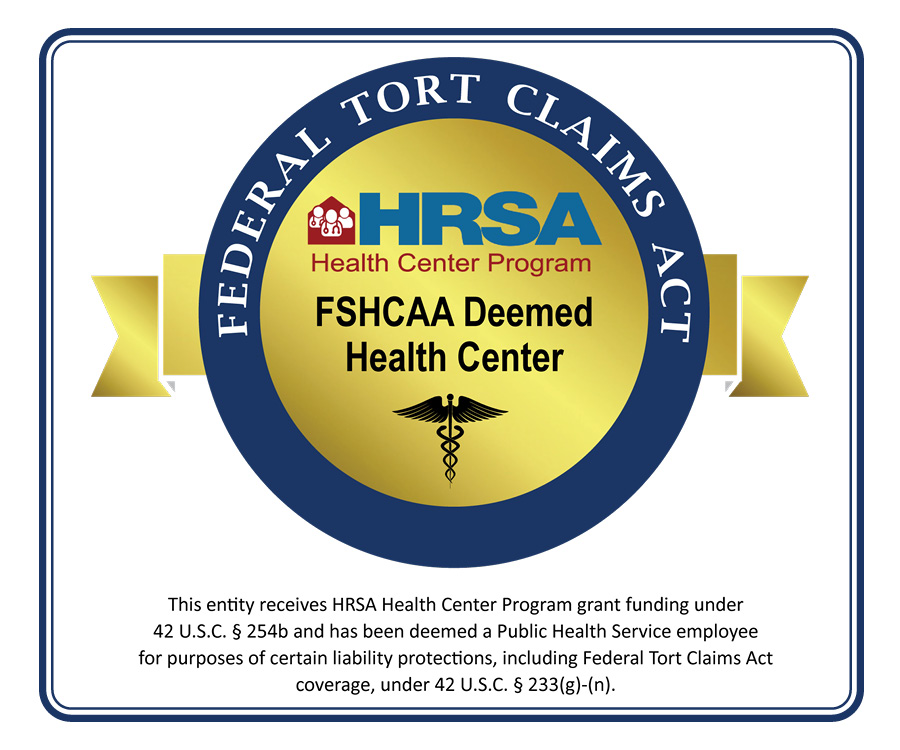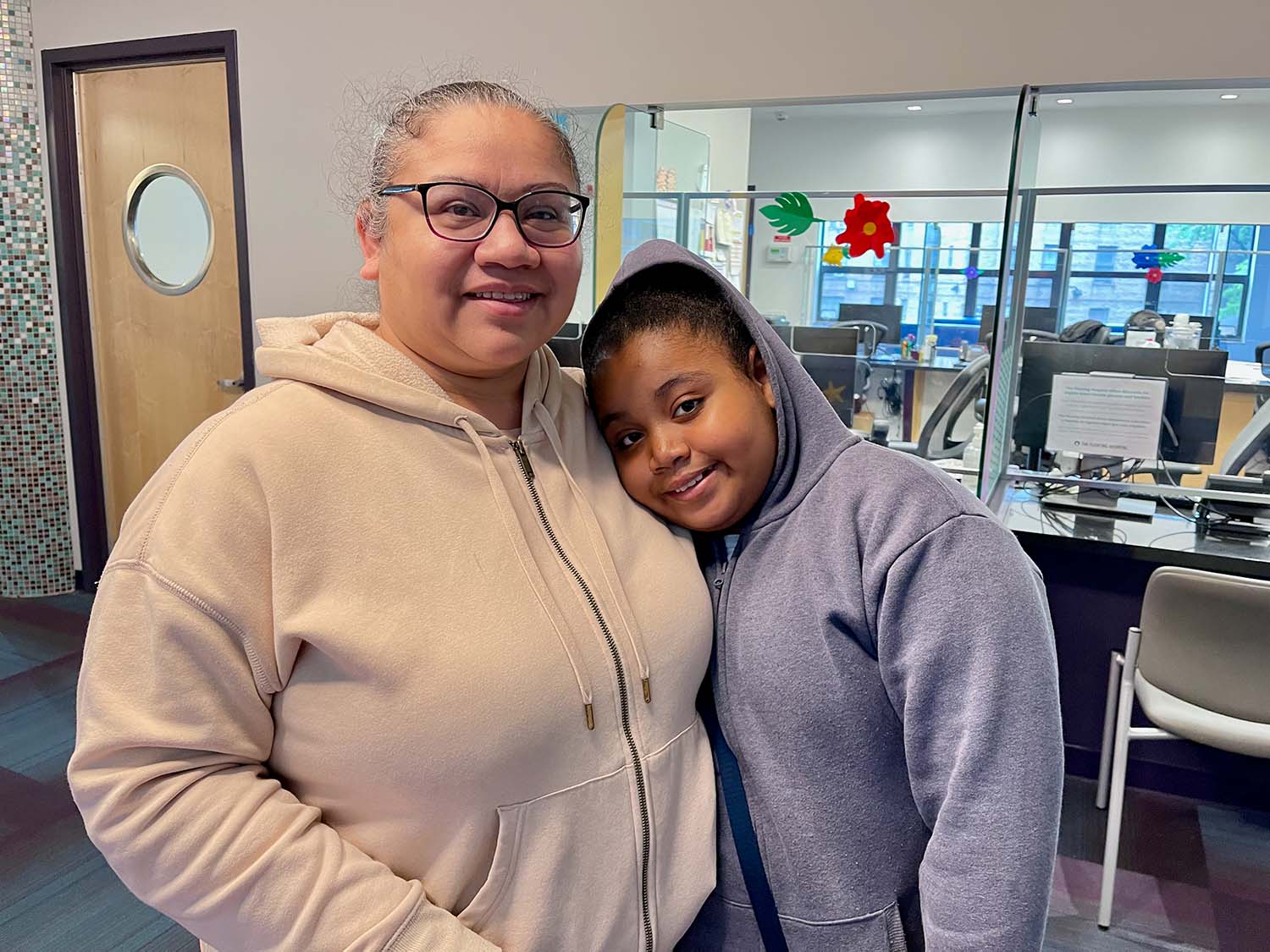
More than Healthcare
The Floating Hospital’s “More than Healthcare” studies get their debut at a national conference
In May, The Floating Hospital was selected to present at the National Health Care for the Homeless Council’s (NHCHC) annual conference held in Baltimore. Answering to the themes of research in the homeless healthcare field that “move toward justice and leading with lived expertise,” two of our researcher/providers submitted abstracts describing our “more than healthcare” model in two areas: health education and life-skills building.
Director of health education Meghan Miller, Ed.D., and organizational development consultant Sarajane Brittis, Ph.D., presented at the conference, which drew more than 1,000 attendees from all 50 states, three territories, Australia and Canada. Drs. Miller and Brittis detailed their respective work with Camp Rise Up and TFH’s 2020-21 Social Determinants of Health (SDoH) survey, the latter of which led to the creation of life-skills programming for patients.
Backed by experience and research, Drs. Miller and Brittis presented on the design and creation of their respective patient-driven programs and measurement tools for assessing relevance, testing and outcomes on issues that are specific to the clinic’s patient population—from risky behavior and knowledge gaps in health education to the environmental, social and economic factors that contribute to homeless patients’ overall wellbeing and ability to thrive.
“What struck me was that the conference was very patient driven. Attendees were interested in the fact that TFH is working alongside patients to find solutions to long-term problems,” Dr. Brittis said. She added that many from the audience asked how they could design and implement similar curricula and how they could get the “buy in” from both patients and leadership to conduct the work. Dr. Miller said several program directors expressed interest in having her visit their programs for training and sharing of curricula and best practices.
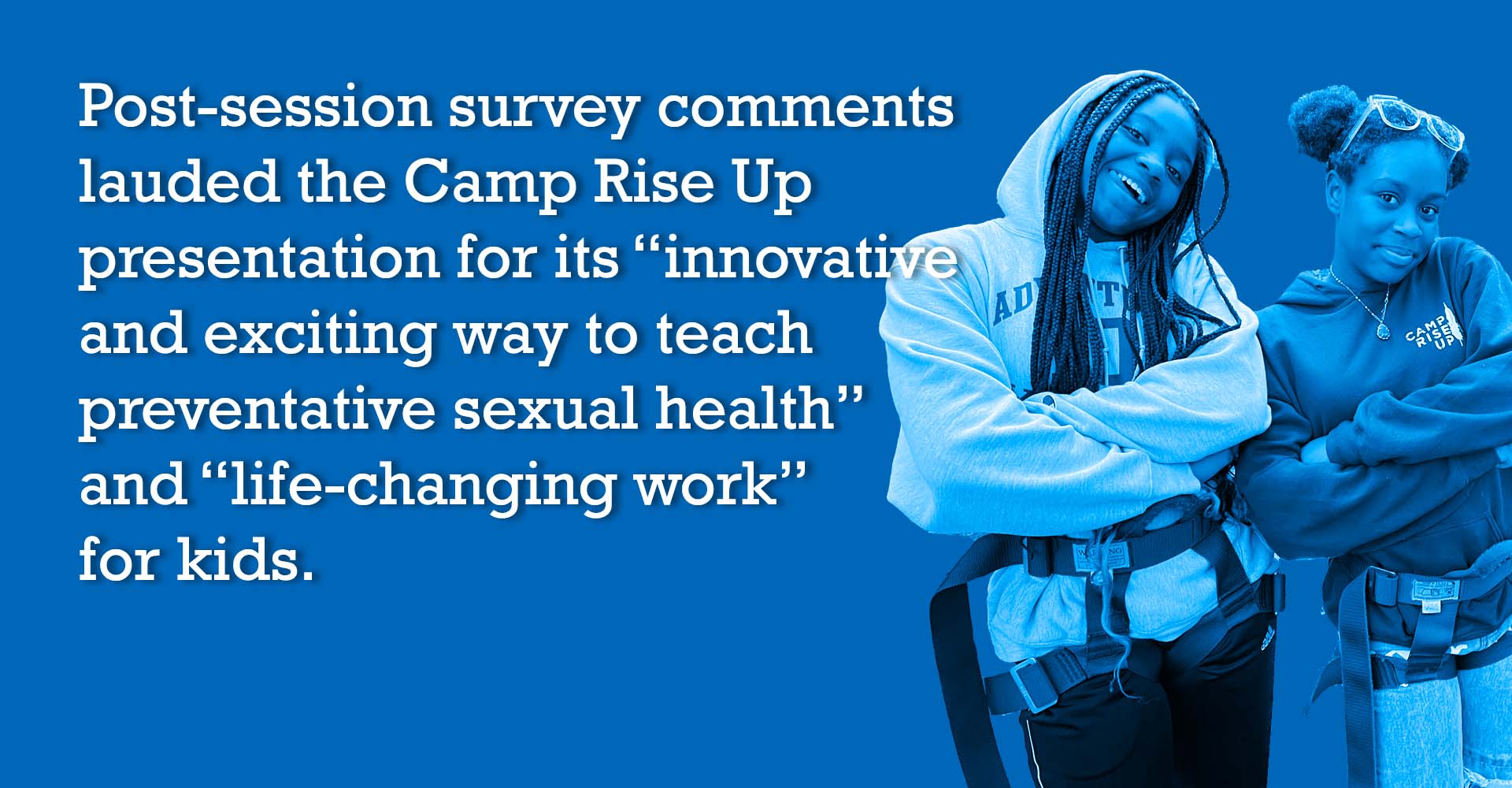
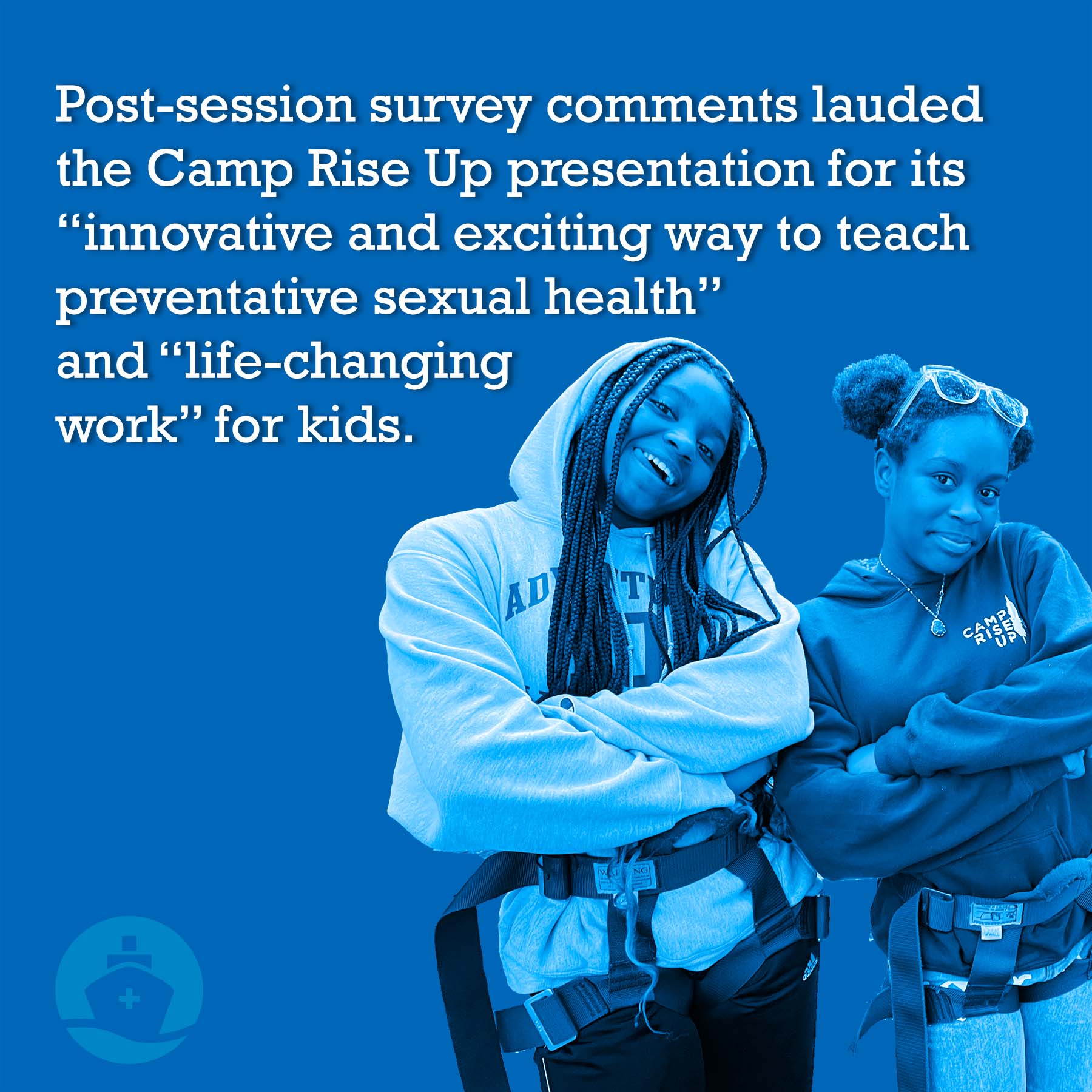
“I had done the youth camps while in the Peace Corps in Uganda and when I came back, I went to the ICPH conference (Institute for Children, Poverty & Homelessness), was inspired by the work discussed there and started thinking I could do that here, too,” Dr. Miller said. “It was really cool to be able to present our camp program that is both backed by research and fun for the kids and to think that, like me, others at the conference might be inspired.”
Both Drs. Miller and Brittis said their presentations stood out for the focus on unhoused youth and families living in shelters in an arena that is often focused on street homeless. Several attendees commented they had not been aware how much homelessness can impact women and children.
“Even though we’re all working with homeless clients, we were kind of in the minority with families, which made our presentations unlike the others,” Dr. Miller said. Post-session survey comments showed significant interest in the SDoH survey design and patient data collection and lauded the Camp Rise Up presentation for its “innovative and exciting way to teach preventative sexual health” and “life-changing work” for kids.
Highlights of both presentations demonstrated both innovation and compassion—a model that harkens back to The Floating Hospital’s early days as an agency that performed outreach, met people at the level of their need with modern and sanitary medical care and vital education, and extended not only a charitable arm but a listening ear.
Key points among the SDoH presentation included the “sacred role of the researcher to be allowed into another person’s life and give voice to the voiceless,” said Dr. Brittis, noting that the survey was designed to “open the door to conversation and create an environment that shows and fosters interest and understanding.” She also noted that the survey was the first step in a longer journey to assess patient needs via their social determinants of health.
“Fixing the problems is long term and can’t be fixed by one conversation or intervention.”
Sarajane Brittis, Ph.D., organizational development consultant, The Floating Hospital
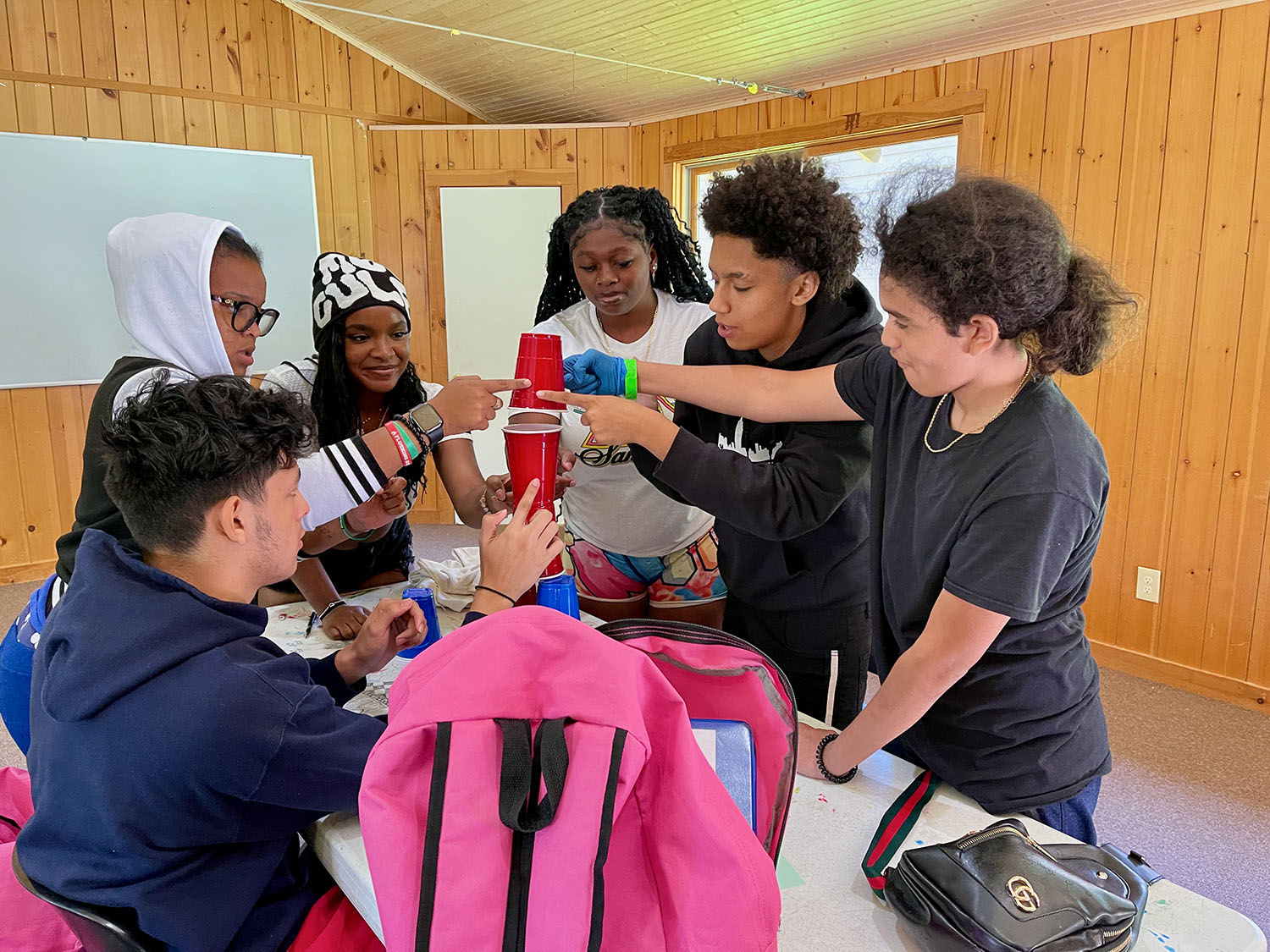
Noting that homeless youth experience high levels of adverse childhood experience (they have a 70%+ exposure of potentially traumatic events) and engage in riskier behavior at much higher levels than their housed peers, Dr. Miller’s presentation focused on a more comprehensive teaching of adolescent sexual health. Camp Rise Up’s three-tier lessons plans include the social-emotional skills that can help youth build confidence, effectively communicate their feelings and mitigate the pressures to engage in behavior that can derail their goals.
“From the interest people had in the curricula, I was hearing that they are interested in this population and topic, and that they agree kids are not getting this information elsewhere,” Dr. Miller said.
The conference was not only an opportunity to put The Floating Hospital on a national radar, but to also share best practices, innovative program design and impact.
“Being at the conference showed us how many people and organizations across the country are committed to improving the lives of people experiencing homelessness. Knowing you’re part of a larger community was a great experience,” said Dr. Brittis. “We both came away feeling supported in that we’re not working alone in the context of what we’re doing.”
This post is featured in our monthly newsletter from October 2023.
To get the latest from The Floating Hospital directly to your inbox, sign up using the form below.
Other posts from this newsletter:
Mariner girl scouts get their sea legs aboard the floating hospital
Share This Story, Choose Your Platform!
Categories
Tags
The Floating Hospital provides high-quality healthcare to anyone who needs it regardless of race, ethnicity, religion, gender, immigration or insurance status, or the ability to pay. By providing unrestricted medical care in tandem with health education and social support to vulnerable New York City families, The Floating Hospital aims to ensure those most in need have the ability to thrive, not just survive.


